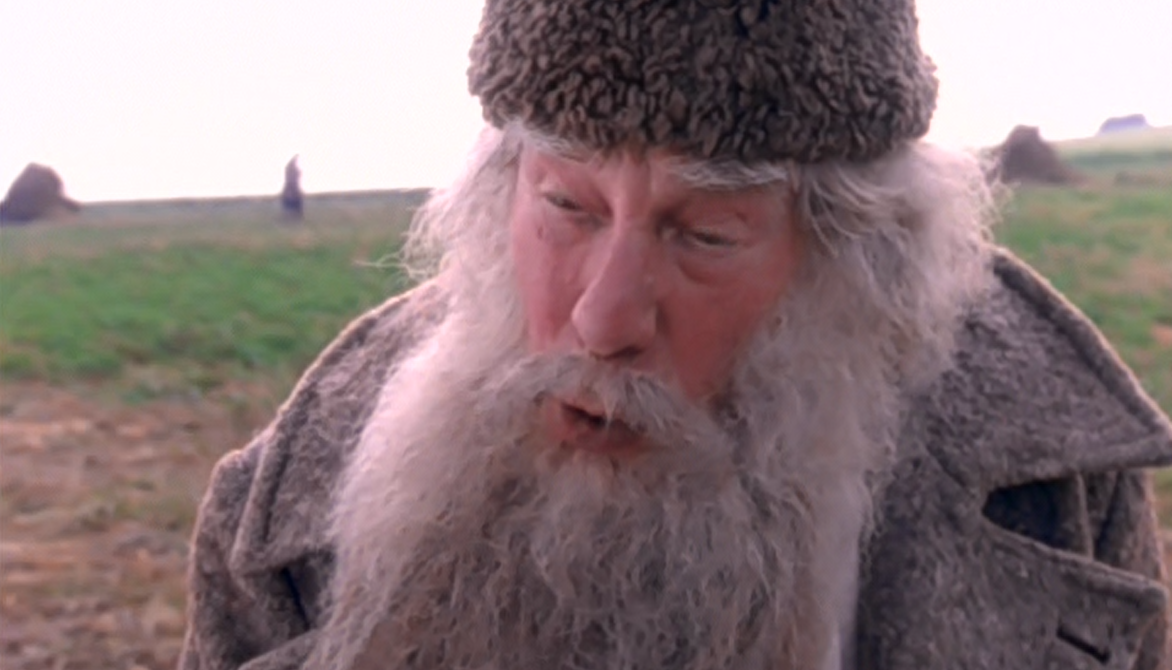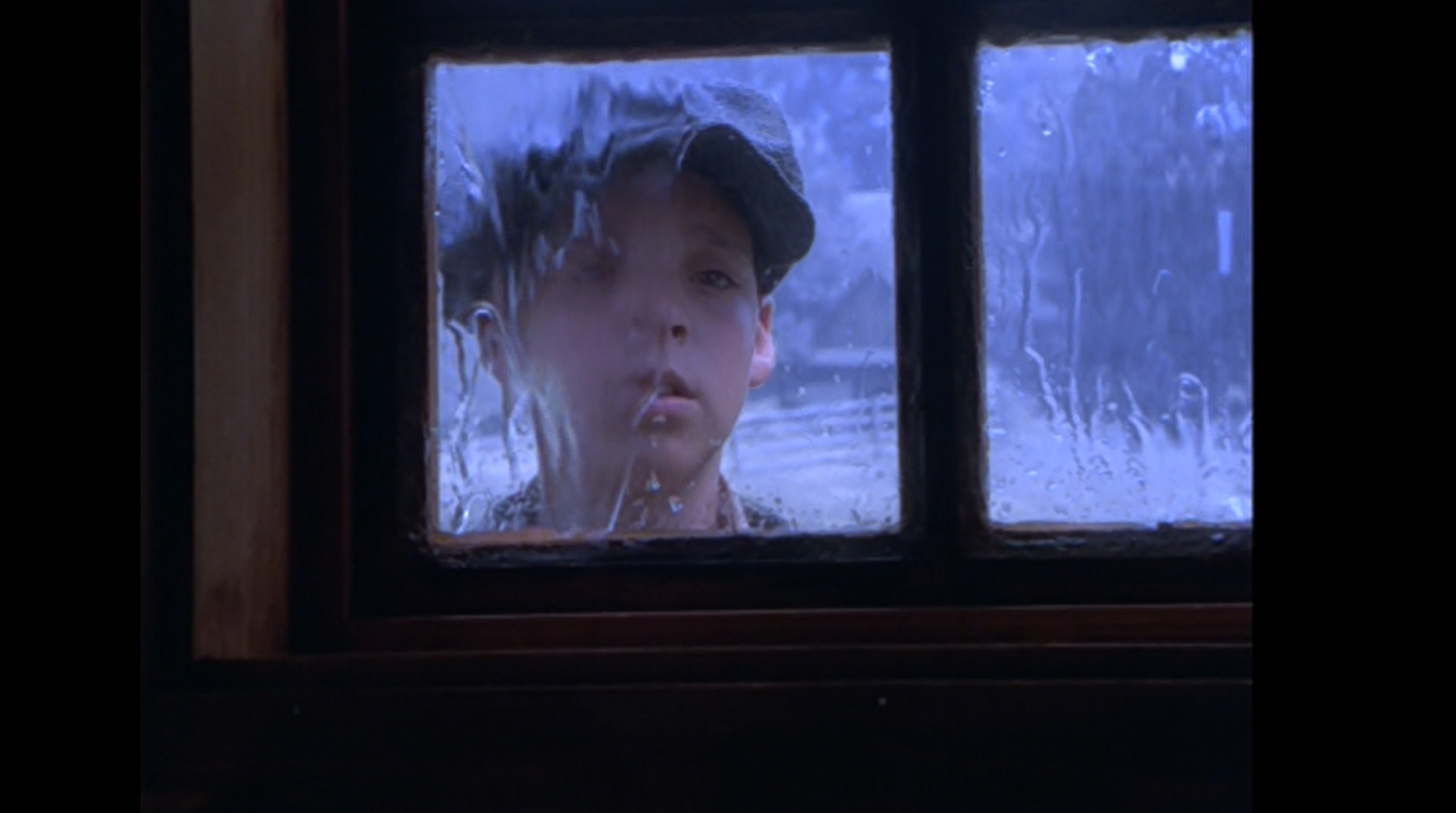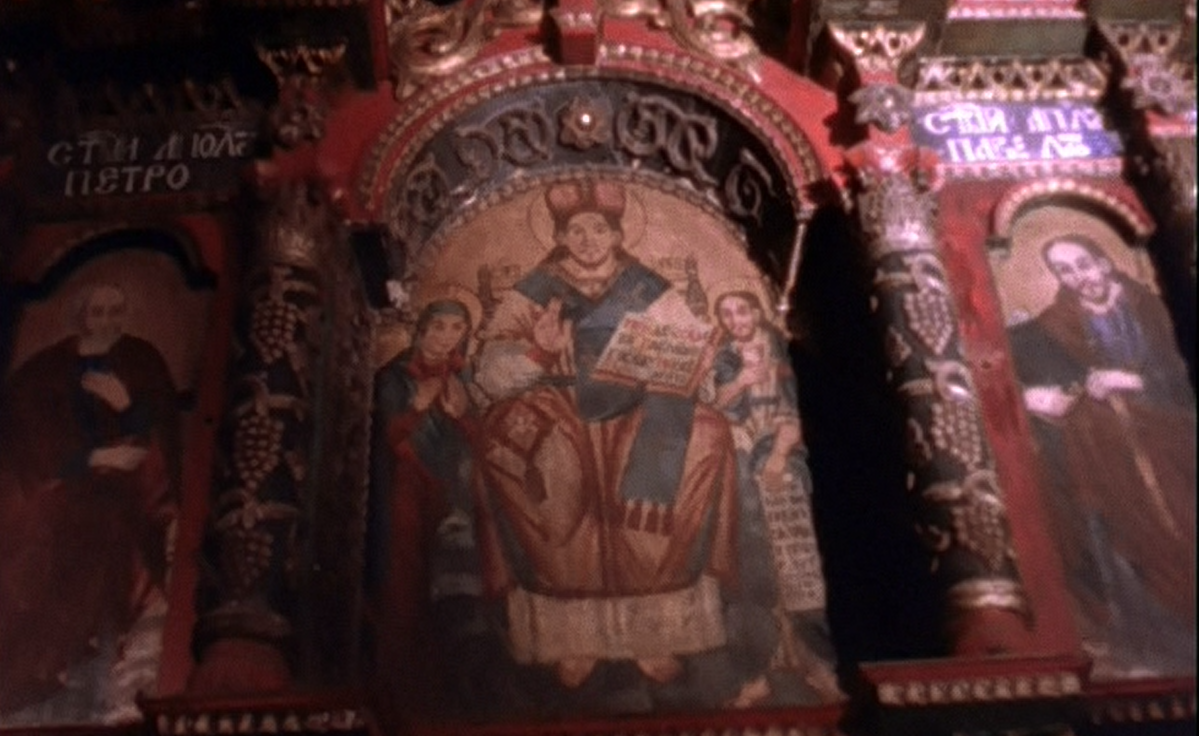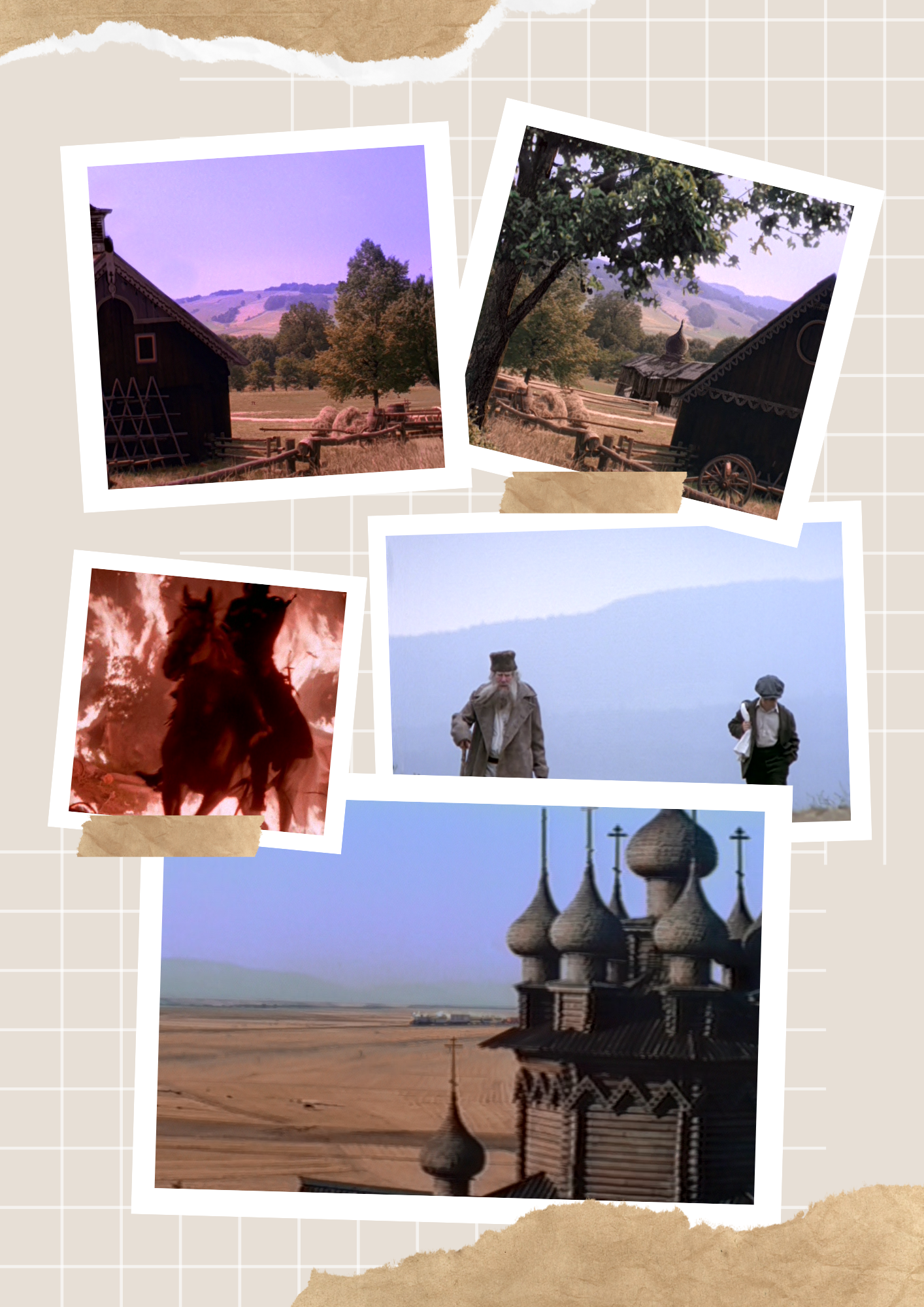Directed by Michael Schulz; Written by Frank Darabont, Matthew Jacobs, Jonathan Hales; Starring Corey Carrier, Lloyd Owen, Ruth de Sosa; Margaret Tyzack, Michael Gough
This “episode” did not air during the time of the original series. Instead, it was released after cancellation as a made-for-tv movie in 1996, one of four released on The Family Channel instead of ABC. The Family Channel, after several name changes, is known as Freeform today.
The episode begins with Indy, his parents, and Miss Seymour traveling via train to Russia. On the way, Indy and his father discuss the Cossacks and how they don’t treat certain ethnic groups very well. Miss Seymour tells him, “The tsars have always used Cossacks as a kind of police force. Sometimes they do things that are … not very pleasant.”
Eventually, the adults fall asleep at the table, and Indy pulls out his baseball bat and ball and ends up waking up everyone and smashing the overhead lamps.
Invited to Russia to attend a wedding, Indy’s parents warn him to be on his best behavior. However, a series of mishaps, including pushing a cart of glasses into the orchestra and dropping a chandelier on the wedding cake, result in Indy receiving severe reprimands from his parents. So incensed is his father that he tells Anna to remove “her” son.
She walks Indy up to his bedroom and tells him his father will deal with him in the morning. Rather than face his father’s wrath, he sneaks out (again!? He does this every episode!) and, after wandering, falls asleep next to a haystack. When he awakens, a weasel in the haystack frightens him, so he pulls out his slingshot and shoots, but he hits a gray-bearded man sitting on the other side.
The cantankerous man starts yelling at him and won’t return Indy’s slingshot. The two end up walking down the road, arguing all the while.
But their anger begins to cool, and the man introduces himself as Lev and mends Indy’s shoe. Indy shares his apple, but gets upset when Lev takes a bigger bite than anticipated. “Things should be divided each according to his need,” he explains, paraphrasing Karl Marx. He’s bigger than Indy, and therefore deserves a larger bite.

As they walk, Indy says he hopes his dog Indiana recognizes him when he returns to America, and Tolstoy says, “ Of course she will. Dogs are better than people.” (Tolstoy published a novella in 1888 entitled Stories of my Dogs.)
But their truce doesn’t last and, angry at each other again, they arrive separately at a village, and Tolstoy is greeted as a returning hero and is provided food and a place at the inn. Indy stands outside, watching enviously through a window. Rain begins to fall, and he wrings out his wet hat. Tolstoy notices him, sticks his head out the door, and accuses him of making him feel guilty, and Indy is welcomed at the table and eats his fill.

The next day, Russians on horseback arrive to return Tolstoy to his family. He and Indy flee, eventually running into a group of Romani (a different word is used in dialogue for the Roma people, so just a warning since it is considered offensive). Indy and Tolstoy join the group, and in the evening, Tolstoy tells stories by the campfire. But a group of Cossacks arrive, burning the camps and sending everyone fleeing. Tolstoy is injured, and Indy finds a church and gets him inside. But Tolstoy regains consciousness and becomes angry, saying that the church turns people away from God. He leaves and collapses again, but Indy’s cries attract the attention of nearby villagers, who come to assist.

When Tolstoy has recovered some, he and Indy continue their journey to the train station, where they plan to begin the journey to New Jersey, but it’s clear Indy has begun to miss his family and asks Tolstoy if he misses his. When the writer finally admits that he does, the pair go to Tolstoy’s house and send word to Indy’s parents about his whereabouts.
The relieved parents hurry to retrieve him, and Professor Jones is so impressed to be in the presence of Tolstoy that a tiny bit of his anger dissipates. But on the way back in the carriage, he sees that Indy has Tolstoy’s bible and scolds him for accepting it. Indy responds that it wasn’t a gift; they traded each other, and Tolstoy received Indy’s prized baseball cards.
The episode ends with a tired Tolstoy sitting at his desk, admiring the cards and reading the stats.

Thoughts
I remember being so disappointed this was a Corey Carrier movie instead of one starring Sean Patrick Flanery, but in the original airings, the bookends featured Flanery. Those were moved to Winds of Change, according to the Indiana Jones wiki. And I don’t really remember the Russia half of the movie, just the part where Indy and his father are in Greece.
That said, I loved Gough’s performance as Tolstoy. I knew he looked familiar but couldn’t place him. (See fun facts below.) It was a cute little buddy episode, and hopefully Indy has learned to quit running away. His poor parents, especially Anna!
Related DVD Documentaries
- Seeking Truth – The Life of Leo Tolstoy
- Unquiet Voices – Russian Writers and the State
History
Leo Tolstoy (1828–1910) Russian aristocrat whose full title was Lev Nikolayevich Tolstoy (Leo was a translation of his name). Best known for novels Anna Karenina and War and Peace.
Fun Facts
Costume designer Trisha Biggar designed the costumes for the Star Wars prequels. Most recently, she has worked on Outlander.
Michael Gough (Leo Tolstoy) portrayed Alfred Pennyworth in the Tim Burton/Joel Schumacher Batman films, and he also worked with Burton again on Sleepy Hollow as Notary Hardenbrook.